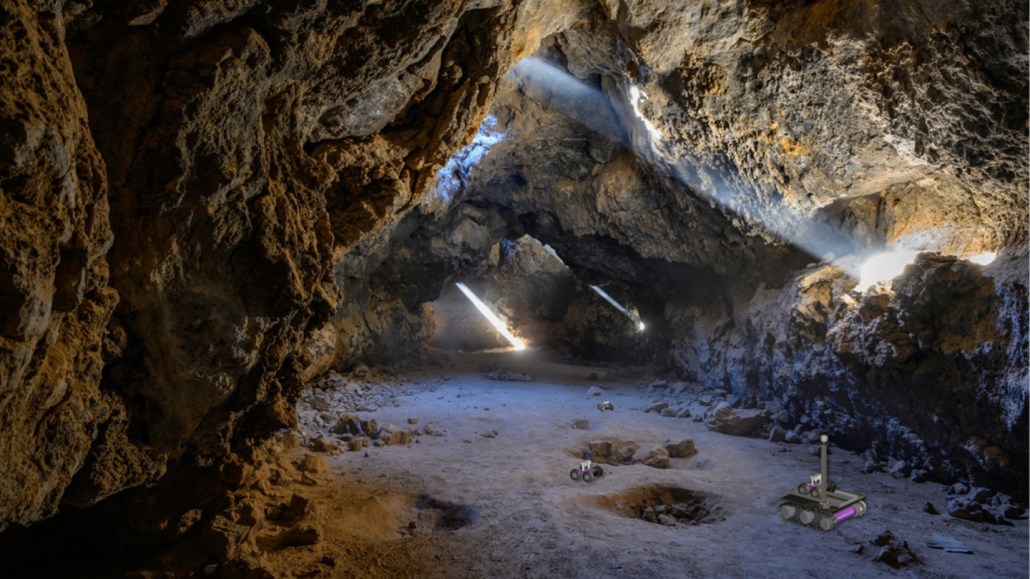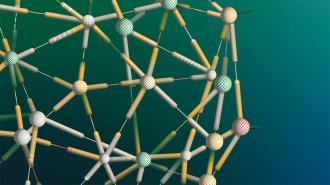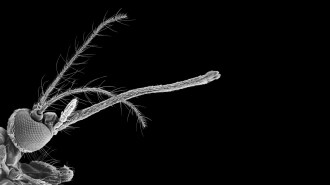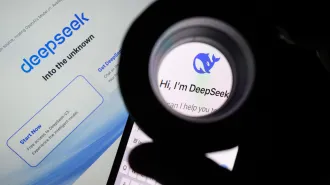
Autonomous rovers could one day deploy sensors while exploring treacherous terrain, such as lava tubes (illustrated), on other worlds. The sensors, enabled with Wi-Fi, would act like bread crumbs that allow any collected data to be passed back to a central rover.
John Fowler/Wikimedia Commons, Mark Tarbell and Wolfgang Fink/University of Arizona






